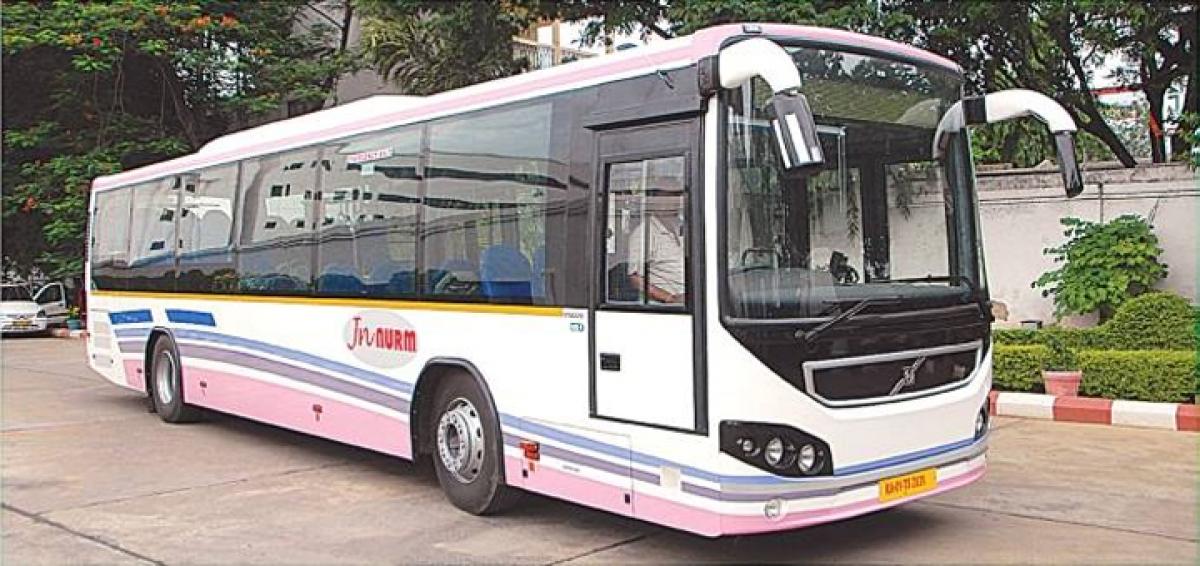Live
- ‘Game Changer’ team teases with a new promo
- Nara Lokesh emphasises overhaul of govt. schools and mid-day meal program
- Amid turmoil, air pollution peaks in Bangladesh as temperatures fall
- Google Trends unveils list of most searched ‘Indian Movies of 2024’
- BGT 2024-25: Hazlewood signals readiness for Brisbane Test after training with full run-up
- Google Presents Deep Research AI Tool for Comprehensive Web Reports
- Share of top 50 stocks to total market cap at all-time low: Report
- Nortje ruled out of SA’s remaining white-ball matches against Pakistan
- Mamata doesn't want INDIA bloc to succeed, claims BJP's Rahul Sinha
- Air India Express cancels flights at Chennai airport due to deluge
Just In

The origin of APSRTC dates back to June1932, when it was first established as NSR-RTD (Nizam State Rail & Road Transport Department), a wing of Nizam State Railway in the erstwhile Hyderabad State, with 27 buses and 166 employees. During the past 77 years, it has registered a steady growth from 27 to 22,333 buses with 778 bus stations, 216 Depots and 1, 881 bus shelters.
The origin of APSRTC dates back to June1932, when it was first established as NSR-RTD (Nizam State Rail & Road Transport Department), a wing of Nizam State Railway in the erstwhile Hyderabad State, with 27 buses and 166 employees. During the past 77 years, it has registered a steady growth from 27 to 22,333 buses with 778 bus stations, 216 Depots and 1, 881 bus shelters.
.jpg)
| Sl.No | Type of bus | Number of services |
| 1 | Vennela (AC Sleeper) | 16 |
| 2 | Garuda Plus (AC Semi-Sleeper Multi Axle) | 49 |
| 3 | Garuda (AC Semi-Sleeper Volvo / Benz / Isuzu) | 116 |
| 4 | Indra (2 + 2 AC Semi-Sleeper) | 188 |
| 5 | Super Luxury (2 + 2 Non-AC Pushback) | 1979 |
| 6 | Deluxe (2 + 2 Non-AC) | 591 |
| 7 | Express (3 + 2 Non-AC) | 729 |
| V. OVER VIEW (UPTO JULY 2015) | |||
| a) | Number of Depots. | 95 | |
| b) | Number of Regions. | 11 | |
| c) | Number of Zones. | 3 | |
| d) | Zonal Work Shops | 2 | |
| e) | Bus Body Building Unit | 1 | |
| f) | Tyre Rtreading Shops | 3 | |
| g) | Printing Press | 1 | |
| h) | Transport Academy | 1 | |
| i) | Staff Training Colleges | 2 | |
| j) | Dispensaries / Hospitals © 2024 Hyderabad Media House Limited/The Hans India. All rights reserved. Powered by hocalwire.com | ||








